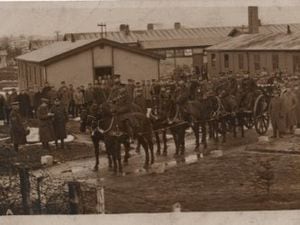Covid hitting more younger people than during first wave, health chief warns
More younger people are now being hit by Covid than during the first wave of the virus, a health chief has warned.

Professor David Loughton, chief executive of the Royal Wolverhampton NHS Trust, said people as young as 20 were in intensive care with the virus at New Cross Hospital, while deaths had occurred among people aged 20-30.
He said there had also been a high number of pregnant women suffering from Covid, some of whom had died.
Prof Loughton warned that despite falling infection rates across the region the entire health service remained under strain, with one day last week seeing 66 ambulances forced to wait for more than an hour to drop off patients at hospital.
Speaking at the region's weekly Covid briefing, Prof Loughton said it was effecting staff that the age range of coronavirus patients had changed.
"We've not got people from 20 years of age to 80 years of age in intensive care," he said.
"We have seen some deaths amongst people aged between 30 and 40, so it isn't just old people. This affects the whole population.
"So don't believe you can ignore the rules and be alright because you're only 30 years of age. That is not necessarily true.
"We are seeing a lot more pregnant women suffering with Covid, and some of them have been very, very ill and we've even had some deaths, so that is really sad.
"If you're pregnant and something doesn't feel right, please contact the midwives and get some help.
"We do not refer people to the Home Office so please make yourself known, because I've got quite a number of people that we've heard off who did not contact us until the last minute, and that is not good for anybody."

Addressing pressures on the whole NHS, he said: "One day last week we had 66 ambulances that waited over an hour to offload.
"That is putting real pressure on ambulance services, and we simply cannot offload in the way that we usually do in the winter months.
"It isn't the right thing to do, but we do it every winter, which is to put patients in the corridor and provide nursing staff to look after them while they are there.
"We cannot do that now because of the risks. We don't know whether they are Covid positive or Covid negative.
"The whole of the health service is under strain."





